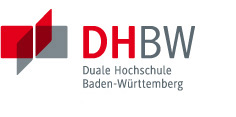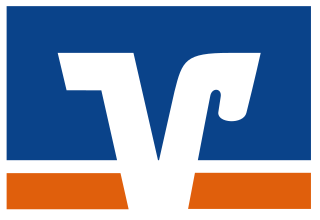
Baden-Württemberg, commonly shortened to BW or BaWü, is a German state in Southwest Germany, east of the Rhine, which forms the southern part of Germany's western border with France. With more than 11.07 million inhabitants as of 2019 across a total area of nearly 35,752 km2 (13,804 sq mi), it is the third-largest German state by both area and population. As a federated state, Baden-Württemberg is a partly-sovereign parliamentary republic. The largest city in Baden-Württemberg is the state capital of Stuttgart, followed by Mannheim and Karlsruhe. Other major cities are Freiburg im Breisgau, Heidelberg, Heilbronn, Pforzheim, Reutlingen, Tübingen, and Ulm.

CashPool is a cooperation of a multitude of smaller or virtual German private banks, in which they mutually waive ATM usage fees for their customers. It is not an interbank network but uses the pre-existing German ATM or Maestro/Cirrus networks. With more than 3200 ATMs, the cooperating banks' ATM networks form the smallest ATM group in Germany.

The Maschinenbau-Gesellschaft Karlsruhe was a locomotive and railway wagon manufacturer in the early days of the German railways. It was based at Karlsruhe in what is now the state of Baden-Württemberg in southwestern Germany.
The Association of German Public Banks is a leading association within the German banking sector, bringing together most of the German public banking sector except the local-level savings banks. Its membership includes 63 banks, including the Landesbanks that are also members of the Deutscher Sparkassen- und Giroverband (DSGV) and form part of the Sparkassen-Finanzgruppe, and promotional and development banks owned by the Federal Republic of Germany or the individual German federal states.
Fiducia IT AG was a German IT-service provider based in Karlsruhe. In 2015, it merged with the GAD eG to form Fiducia & GAD IT AG.

The Baden-Württemberg Cooperative State University is an institution of higher education with several campuses throughout the state of Baden-Württemberg, Germany. It offers dual-education bachelor's-degree programs in cooperation with industry and non-profit institutions in the areas of business administration, engineering, and social services. In 2011, it started a limited master's program.

Offenburg station is a railway station in Baden-Württemberg and has seven tracks on four platforms. Offenburg used to be a railway town and the station was of major economic importance to it. In recent years the maintenance facilities and much of the rail freight yards have been closed. The station is very centrally located within the city and is easily accessible by 18 different bus routes from the central bus station, 50 metres from the railway station.
The Bundesverband deutscher Banken is the representative body of profit-oriented banks in Germany and a key lobby group for Germany's financial sector.
The Bankcard-Servicenetz is a German ATM card interbank network group provided by the Volksbanken und Raiffeisenbanken services group. Technically it is not an interbank network but uses the pre-existing girocard network. Member banks of this cash credit group charge ATM usage fees at a low level and most customers of the co-operative banks enjoy free withdrawal from their accounts. With 19,200 ATMs the Bankcard-Servicenetz group is the second largest ATM group in Germany.

The German Cooperative Financial Group is a major cooperative banking network in Germany that includes local banks named Volksbanken and Raiffeisenbanken, the latter in tribute to 19th-century cooperative movement pioneer Friedrich Wilhelm Raiffeisen. The Cooperative Group represents one of the three "pillars" of Germany's banking sector, the other two being, respectively, the Sparkassen-Finanzgruppe of public banks, and the commercial banking sector represented by the Association of German Banks.
The Baden Football Association, the bfv, is one of 21 state organisations of the German Football Association, the DFB, and covers the north of Baden, the north-western part of the state of Baden-Württemberg.

The Württemberg Football Association, the WFV, is one of 21 state organisations of the German Football Association, the DFB, and covers the north-western part of the state of Baden-Württemberg.
The South Baden Football Association, the SBFV, is one of 21 state organisations of the German Football Association, the DFB, and covers the south-western part of the state of Baden-Württemberg.

The PSD Bankengruppe is a German cooperative banking group consisting of 14 autonomous and independent financial institutions. The business model of the PSD banks is a combination of regional direct and affiliated bank. It provides retail banking services via internet, telephone, e-mail, mail and fax or at local branches, it only provides services to retail clients and does not offer banking to self-employed and businesses.

The BBBank eG is a German cooperative bank headquartered in Karlsruhe (Baden-Württemberg). It is solely focused on private banking. With total assets of almost 11 billion Euros and over 470,000 members the bank is one of the biggest member banks in Germany.

Oberbank AG is an Austrian regional bank that is headquartered in Linz. It is part of the 3-Banken-Gruppe together with BKS Bank AG and Bank für Tirol und Vorarlberg AG (BTV).

Danyal Bayaz is a German politician of Alliance 90/The Greens who has been serving as State Minister of Finance in the government of Minister-President of Baden-Württemberg Winfried Kretschmann since May 2021. From 2017 until 2021, he was a member of the Bundestag.
The Sparkassen-Finanzgruppe is a network of public banks that together form the largest financial services group in Germany and in all of Europe. Its name refers to local government-controlled savings banks that are known in German as Sparkasse, plural Sparkassen. Its activity is overwhelmingly located in Germany.

The German public banking sector represents a significant share of the broader banking sector in Germany. Unlike in most other Western and Central European countries, German public-sector banks have been present since the early phases of formalization of banking entities in the early modern period and have never lost their collective significance. They are typically referred to as one of the three “pillars” of the German banking system, the other two pillars being the cooperative banks and commercial banks.











